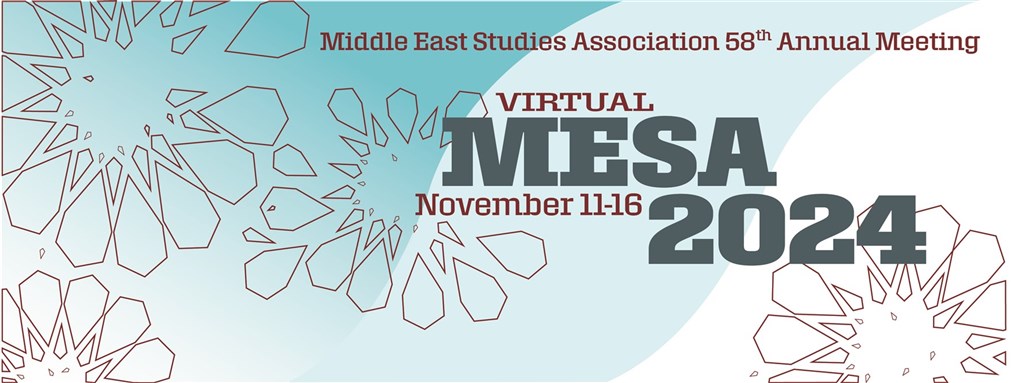
- This event has passed.
MESA Conference 2024 – Panel VII ‘Melodious Resistance: Music, Politics, and Pedagogy’

Sophie Frankford and Yara Salahiddeen recently participated in a panel at the annual conference of the Middle East Studies Association (MESA) entitled Melodious Resistance: Music, Politics and Pedagogy.
Sophie Frankford
Between Welfare and Exclusion: The Shifting Role of Egypt’s Musicians’ Syndicate
When Egypt’s Musicians’ Syndicate was established in 1944, thanks in part to the efforts of singer Umm Kulthum, it was envisaged as a way to provide musicians with material support including healthcare, pensions, and help securing employment. Although the Syndicate continues to provide these services, in recent years it has hit the headlines instead for its increasingly spectacular policing of Egypt’s music scene: it has fined and arrested numerous musicians it deems to be threatening public taste, and even tried to ban an entire genre (mahraganat) in the name of preserving the country’s musical heritage. Using press sources, documents from the Syndicate, and ethnographic fieldwork with musicians and Syndicate officials in Cairo (2018-2023), this paper traces transformations in the Syndicate’s role and remit from the 1940s to the early 2020s, focusing on the shifting balance between its two functions: providing welfare, and excluding certain musicians and styles. I show that these two functions have always gone hand in hand, increasing in tandem at certain historical junctures. Since the 1950s, fines and levies against non-members have been used to fund members’ welfare provisions, and the violent exclusion of novel musical styles ensures continued employment for older, more established musicians who constitute the Syndicate’s main member base. Contrary to scholarship that suggests the Syndicate is increasingly interventionist, I show that the Syndicate has always been invested in policing the boundaries of the musical profession in ways that exclude certain (often already marginalised) artists. Drawing on recent scholarship on music-making in Egypt (Sprengel 2019, 2020; Karawya 2022; Simon 2022), I argue that historicising the actions of the present-day Syndicate can help us better understand its central role in shaping the country’s music scene, as well as illuminating the realities of cultural production under conditions of authoritarianism. I also draw on broader writing on the role of professional associations (al-niqābāt al-mihaniyya) in Egypt (Springborg 1978; Pollard 2014; Longueness and Monciaud 2011), to consider how these associations (the Musicians’ Syndicate included) function to compensate for the limits of the welfare state through their self-funded welfare provision programmes.
Yara Salahiddeen
Songbooks – Music Publishing and Literacy in Egypt at the Turn of the 20th Century
This paper examines songbooks published between the 1870s and 1920s by a small but active music publishing scene in Cairo and Alexandria. I have named these publications ‘songbooks’ as they feature collections of lyrics of vocal forms, including muwashshah, dawr, mawwāl, qasῑda, ṭaqṭuqa, nashīd and sung marches. As relatively unused sources, they reveal a live repertoire never placed on commercial records, as well as a connection between a nascent entertainment scene and a cottage print industry on Cairo’s Mohammad Ali Street. Song collections provide an alternative source for the study of aesthetic trends within popular entertainment but also provide evidence for the significance of sung practice as one of the sites of formation of a shared national culture. Their presence increased the circulation of a popular repertoire, from a word of mouth to something physically shareable – crucially before the emergence of the mass record industry. This forces us to rethink conceptions of musical literacy in their potential as pedagogical or performance props as well as a silent way to engage with poetry. My work shows that content broadened from derivations of older theoretical treatises and semi-pedagogical texts to something more reflective of a hobbyist interest in the commercial scene. It also reveals the divergences of interest in the ṭarab (musical ecstasy or engagement) aesthetic within a fast changing urban recreational scene. Music publishing represents the bridging between elite and non-elite claims over the definition of ‘local’ Egyptian musical culture. Books were often a result of the network shared between musicians, publishers, print presses, teachers, song-makers (composers, lyricists etc), instrument-makers and musicologists. For readers, books were a way to claim knowledge not of the songs themselves but of the culture of music-making, including through visual media like photographs and engravings of relevant artists and instruments. The gender and class implications of this are significant of course at a time of increasing access for women musicians and listeners. This work therefore contributes both to Arabic music historiography, but also to the emergent field of popular culture studies of the Middle East and Mediterranean during the late Ottoman Empire. In terms of methodology, I bring my performance insight into analyses of the content organisation, song selections and prefaces of the works as well as their implications on the ways that texts might have informed existing performance and pedagogies.

